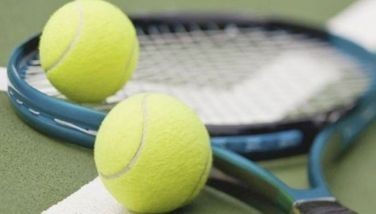Physical education and Olympism
We continue quoting portions of the email sent by Rafael (Paeng) Hechanova and Arturo (Art) Macapagal, chairman and president, respectively, of the Philippine Olympians Association, in reaction to our several columns on Olympism.
The columns were further enlivened by fencing’s Victor (Toto) Africa who batted for, among other things, the early exposure of school children to Olympism and its core values through the Department of Education (DepEd), and by former PSC chairman Perry Mequi, now Dean of the College of Physical Education of Foundation University in Dumaguete.
Hechanova, a member of the Philippine basketball squad to the 1952 Helsinki Olympics, and Macapagal, who represented the Philippines in Olympic shooting in 1972 (Munich) and in 1976 (Montreal), stated that “it is said and rightly so that the ‘Olympics may be the only sports movement that is explicitly guided by a philosophy of life known as Olympism’.
The duo adds that it really makes sense to follow the lead of the International Olympic Committee (IOC) to introduce the values of Olympism to the youth. It also makes sense that the country’s sports program must be founded on a philosophy with focus on developing values patterned after the message and goals of the Olympic Movement.
The two Olympians end their participation momentarily by offering their services to society: “As we support the proposal to introduce Olympism to the youth through the DepEd, we offer the services of our Filipino Olympians in this laudable endeavor. The motto of the World Olympians Association to which all Filipino Olympians are affiliated, is “an Olympian is an Olympian forever.â€
Hechanova and Macapagal state that the motto is “intended to remind us that even after our sports careers, we must continue to live by the values we developed as athletes and to always be conscious of and adhere to the principles of Olympism.â€
On the other side of our imaginary roundtable discussion comes the interesting exchange of insights between Mequi and DepEd Undersecretary Dina Ocampo.
Mequi stated that a report of the Philippine Heart Association says, “victims of heart ailments are getting younger and younger.†Mequi rather boldly asserts that the report validates his claim that the current Music Arts Physical Education and Health (MAPEH) modules being used in the K+12 program are not adequate because the guidelines used by the curriculum writers are not updated.â€
Mequi says he has seen many of these MAPEH modules both from DepEd websites and books but the PE component focuses on physical fitness, which is just one component of the current day concept of wellness. He adds that there’s very little, if any, on the use of sports for promoting desirable character and values formation.
Mequi states that if we bear in mind that the last year of senior high school in the K+12 program prescribes that sports will be one of the areas of specialization, the current guidelines for the production of teaching modules will not meet this objective.
For her part, Usec Ocampo said that “we are not ignoring your suggestions nor that of Atty Africa. The teaching guides and learning materials developed by DepEd are only (for) Grades 1, 2, 7 and 8. There are no guidelines yet for the whole grades one to 12.
Ocampo adds that Africa came to the DepEd selling the objectives of Olympism. Ocampo says that these Olympic values are inherent in the teaching of PE and sport. And if I may weigh in at this point, they should be inherent in all subjects in all levels of lower and higher education just as ethics and ethical behavior should find their way in all subjects and not just exclusively in the Ethics subject.
Mequi finds the comments of Ocampo welcome and reassuring but time is of the essence and the implementation of the K+12 program calls for a sense of urgency. Mequi claims he has seen a MAPEH high school series I-IV published by a book company that he was made to believe is to be used in the K+12 program. He says he was alarmed by its inadequacy in providing relevant information on current health and wellness concerns that could be addressed by MAPEH.
To be sure, there is no shortage of imaginative ideas on how values and virtues can be integrated in the teaching of PE and school sports. The subject of Olympism or even several sessions on it is one of them. Practical exposure to the inner workings of the Olympic movement or the national sports associations is another idea.
The table is open for suggestions – we must remind everyone, however that, in the course “Organizing an Olympic Sports Organization†we’re teaching to officials of our national sports associations, the IOC states in its teaching materials, how a country values sports will be reflected in its attitudes toward the subject Physical Education and how it is taught.
- Latest
- Trending

























